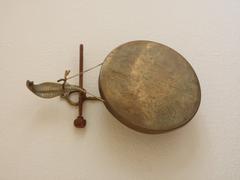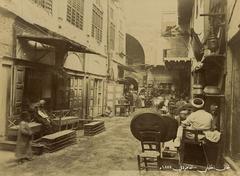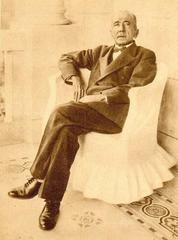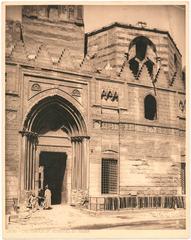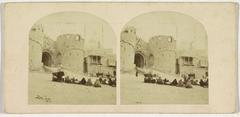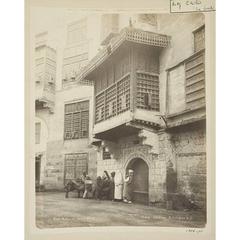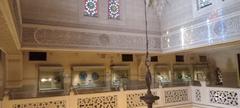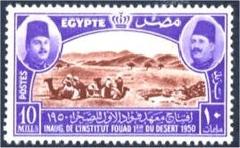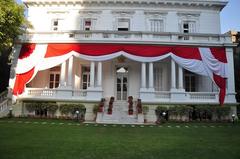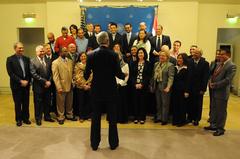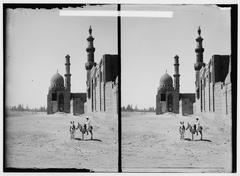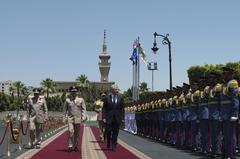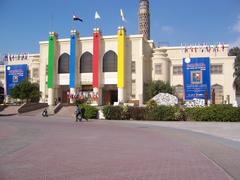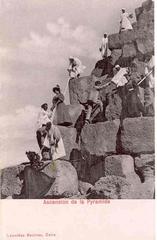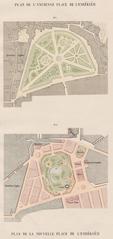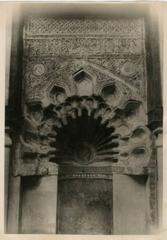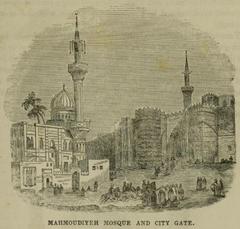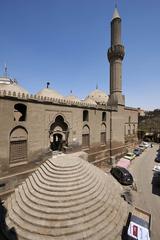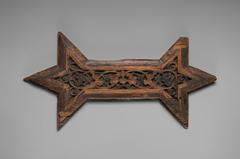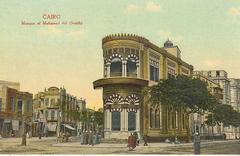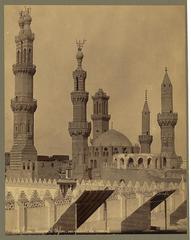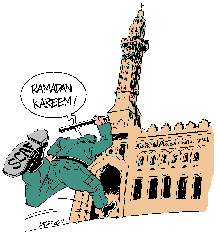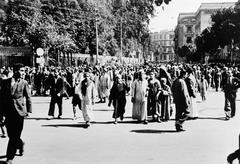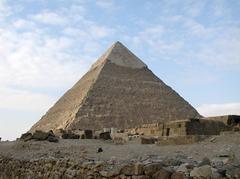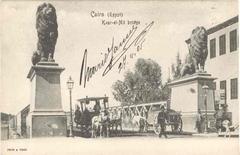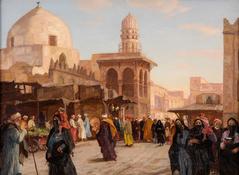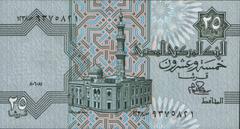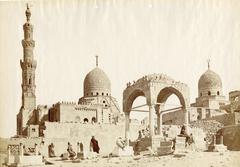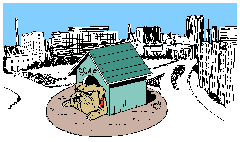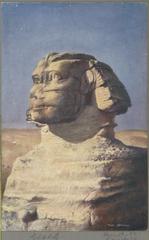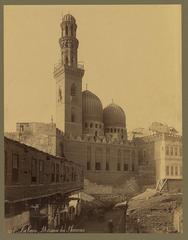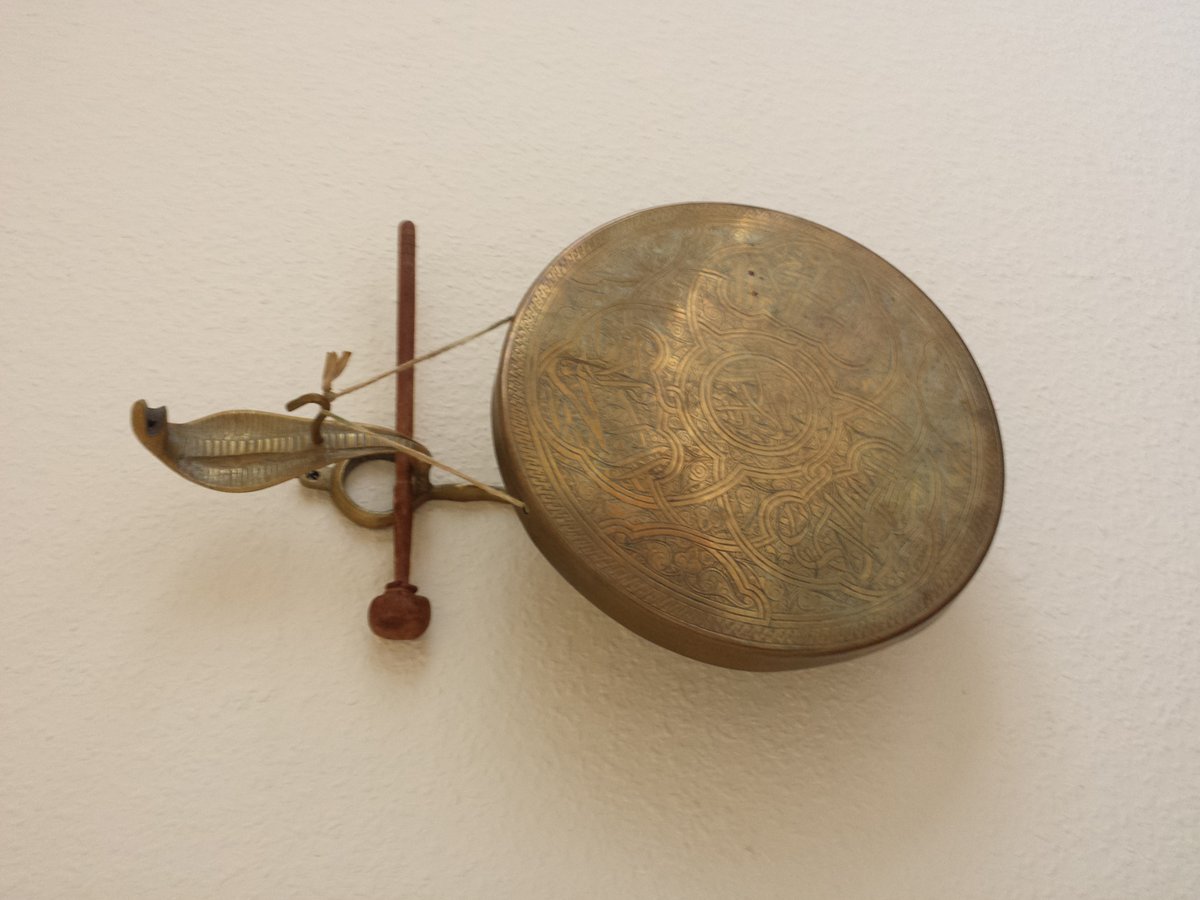
Comprehensive Guide to Visiting Khan El-Khalili, Cairo, Egypt
Date: 16/07/2024
Introduction
Khan El-Khalili, nestled in the heart of Cairo, Egypt, is a mesmerizing blend of history, culture, and commerce. This iconic bazaar, established in the 14th century by Emir Djaharks el-Khalili, has evolved over centuries to become one of the most famous and historic markets in the Middle East. Its origins trace back to a large caravanserai built on the site of a former mausoleum housing the tombs of the Fatimid caliphs (Britannica). This historical layering enriches the market’s significance, making it not just a commercial hub but also a site of immense historical importance.
Over the centuries, Khan El-Khalili has been shaped by various influences, including the Mamluk and Ottoman eras, which have left their mark on its architecture and cultural landscape (Al Jazeera). The market’s narrow alleys and labyrinthine layout reflect the artistic sensibilities of medieval Islamic architecture, adorned with intricate mashrabiya and ornate facades that provide both shade and ventilation in Cairo’s hot climate (Archnet).
Today, Khan El-Khalili stands as a vibrant testament to Cairo’s rich heritage, attracting thousands of visitors each day who are eager to explore its bustling streets, shop for traditional crafts, and savor local delicacies. From historical landmarks like the Al-Hussein Mosque and the Al-Azhar Mosque to the market’s numerous cafes and eateries, Khan El-Khalili offers a unique and unforgettable experience for anyone visiting Cairo (Lonely Planet).
Table of Contents
- Introduction
- History of Khan El-Khalili
- Modern Day
- Visitor Information
- Unique Aspects
- FAQ Section
- Conclusion
History of Khan El-Khalili
Origins and Establishment
Khan El-Khalili, one of Cairo’s most famous bazaars, has a rich history that dates back to the 14th century. The market was established in 1382 by Emir Djaharks el-Khalili, a powerful Mamluk ruler, who built a large caravanserai (a roadside inn where travelers could rest and recover from the day’s journey) in the heart of Cairo. This caravanserai was intended to serve as a hub for traders and merchants traveling along the Silk Road and other trade routes. The original structure was built on the site of a former mausoleum, which housed the tombs of the Fatimid caliphs (Britannica).
Mamluk Era
During the Mamluk era, Khan El-Khalili became a bustling center of commerce. The Mamluks, who ruled Egypt from 1250 to 1517, were known for their patronage of the arts and architecture. They constructed numerous buildings, including mosques, madrasas (Islamic schools), and caravanserais, which contributed to the architectural splendor of Cairo. Khan El-Khalili was no exception; it featured intricate Islamic architectural designs, including domes, arches, and courtyards, which were characteristic of Mamluk architecture (Al Jazeera).
Ottoman Influence
In 1517, the Ottoman Empire conquered Egypt, marking the beginning of a new era for Khan El-Khalili. The Ottomans continued to use the market as a commercial hub, but they also introduced new architectural styles and administrative changes. The market expanded, and new sections were added to accommodate the growing number of traders and artisans. The Ottomans also built several mosques and religious schools in the area, further enhancing its cultural and religious significance (Egypt Today).
19th and 20th Centuries
The 19th and 20th centuries brought significant changes to Khan El-Khalili. During the 19th century, Egypt underwent a period of modernization under the rule of Muhammad Ali Pasha and his successors. This period saw the introduction of new technologies and infrastructure, which had a profound impact on the market. The construction of new roads and the introduction of modern transportation methods made it easier for traders to access Khan El-Khalili, leading to an increase in commercial activity (Lonely Planet).
In the 20th century, Khan El-Khalili continued to thrive as a center of commerce and culture. The market became a popular destination for tourists, who were drawn to its vibrant atmosphere and historical significance. The Egyptian government also took steps to preserve the market’s architectural heritage, recognizing its importance as a cultural landmark. Restoration projects were undertaken to maintain the market’s historic buildings and ensure their continued use (Egypt Today).
Modern Day
Today, Khan El-Khalili remains one of Cairo’s most iconic landmarks. The market is a bustling hub of activity, with thousands of visitors flocking to its narrow streets and alleys each day. It is home to a wide variety of shops and stalls, selling everything from traditional Egyptian crafts and souvenirs to spices, jewelry, and textiles. The market also features numerous cafes and restaurants, where visitors can enjoy traditional Egyptian cuisine and experience the vibrant atmosphere of the bazaar (Lonely Planet).
Visitor Information
Visiting Hours and Tickets
Khan El-Khalili is open daily from 9 AM to 11 PM. While entrance to the market itself is free, spending money on local crafts, souvenirs, and food is highly recommended to fully experience what the bazaar has to offer.
Travel Tips
- Best Time to Visit: Early mornings and late afternoons are ideal times to avoid the crowds.
- Getting There: The market is located in the Islamic Cairo district. It is easily accessible by taxi or public transportation.
- Safety Tips: Keep an eye on your belongings, as the market can get very crowded. Bargaining is common, so don’t hesitate to negotiate prices.
Nearby Attractions
- Al-Azhar Mosque: A historic mosque located close to Khan El-Khalili, known for its stunning architecture and cultural significance.
- Cairo Citadel: Another must-visit site, offering panoramic views of Cairo and a glimpse into the city’s medieval history.
- Islamic Cairo: The surrounding area is rich with historical sites, including mosques, madrasas, and other architectural gems.
Accessibility
Khan El-Khalili is largely accessible, but the narrow and crowded streets may pose challenges for visitors with mobility issues. It is advisable to go with a companion if you require assistance.
Unique Aspects
Special Events
Khan El-Khalili often hosts cultural events and festivals, particularly during Ramadan and other Islamic holidays.
Guided Tours
Several tour operators offer guided tours of the market, providing deeper insights into its history and cultural significance.
Photographic Spots
The intricate architecture and vibrant street scenes make Khan El-Khalili a photographer’s paradise.
FAQ Section
- What are the visiting hours for Khan El-Khalili? Khan El-Khalili is open daily from 9 AM to 11 PM.
- How to get to Khan El-Khalili? The market is located in the Islamic Cairo district and is easily accessible by taxi or public transportation.
- Is there an entrance fee for Khan El-Khalili? No, entrance to the market is free, but you may want to bring money for shopping and dining.
- What are the best times to visit Khan El-Khalili? Early mornings and late afternoons are ideal times to avoid the crowds.
Conclusion
Khan El-Khalili’s rich history and cultural significance make it a must-visit destination for anyone traveling to Cairo. Its unique blend of historical architecture, vibrant commerce, and cultural heritage offers a glimpse into the city’s past and present, making it a truly unforgettable experience. Whether you’re there to shop, eat, or simply soak in the atmosphere, Khan El-Khalili has something for everyone (Egypt Today).
For those planning a trip to Cairo, Khan El-Khalili is an essential stop that promises a rich and immersive experience. To stay updated on all things related to Cairo’s historical sites and more, consider downloading the Audiala mobile app and following us on social media for the latest updates and travel tips.
